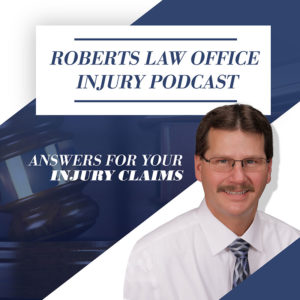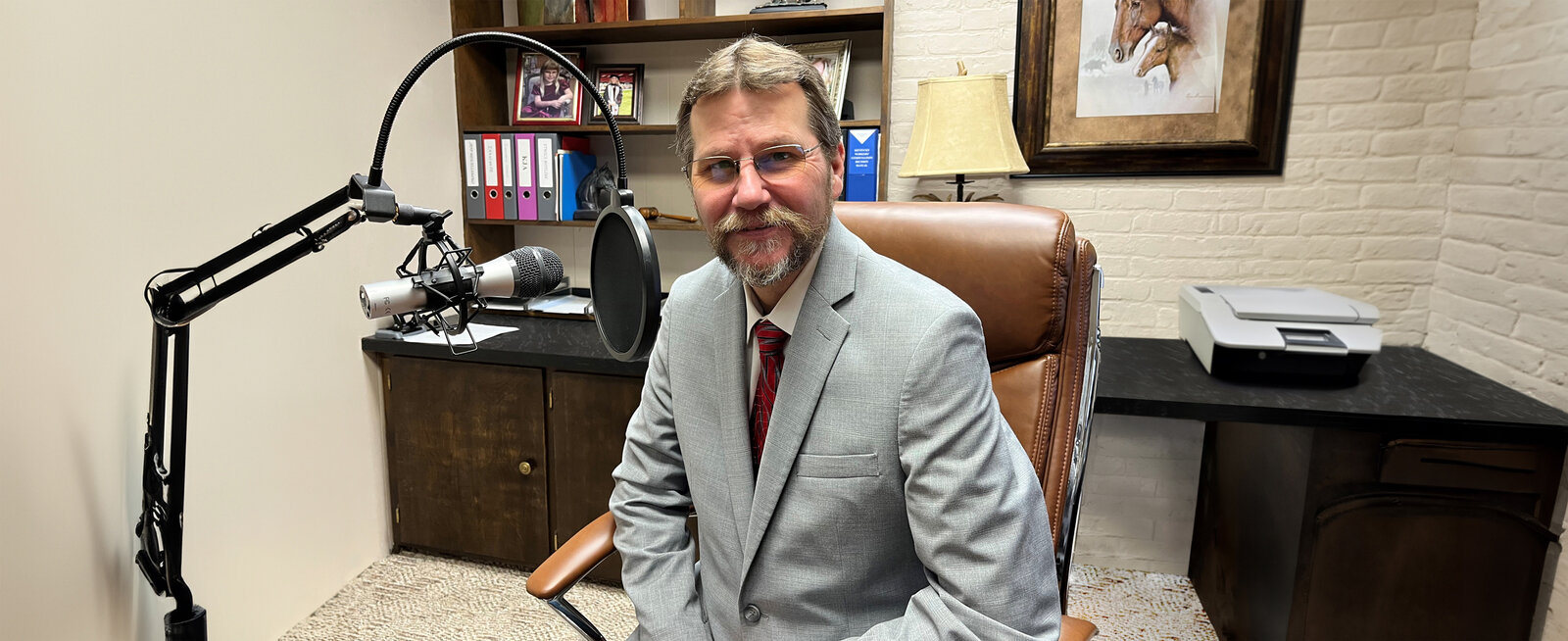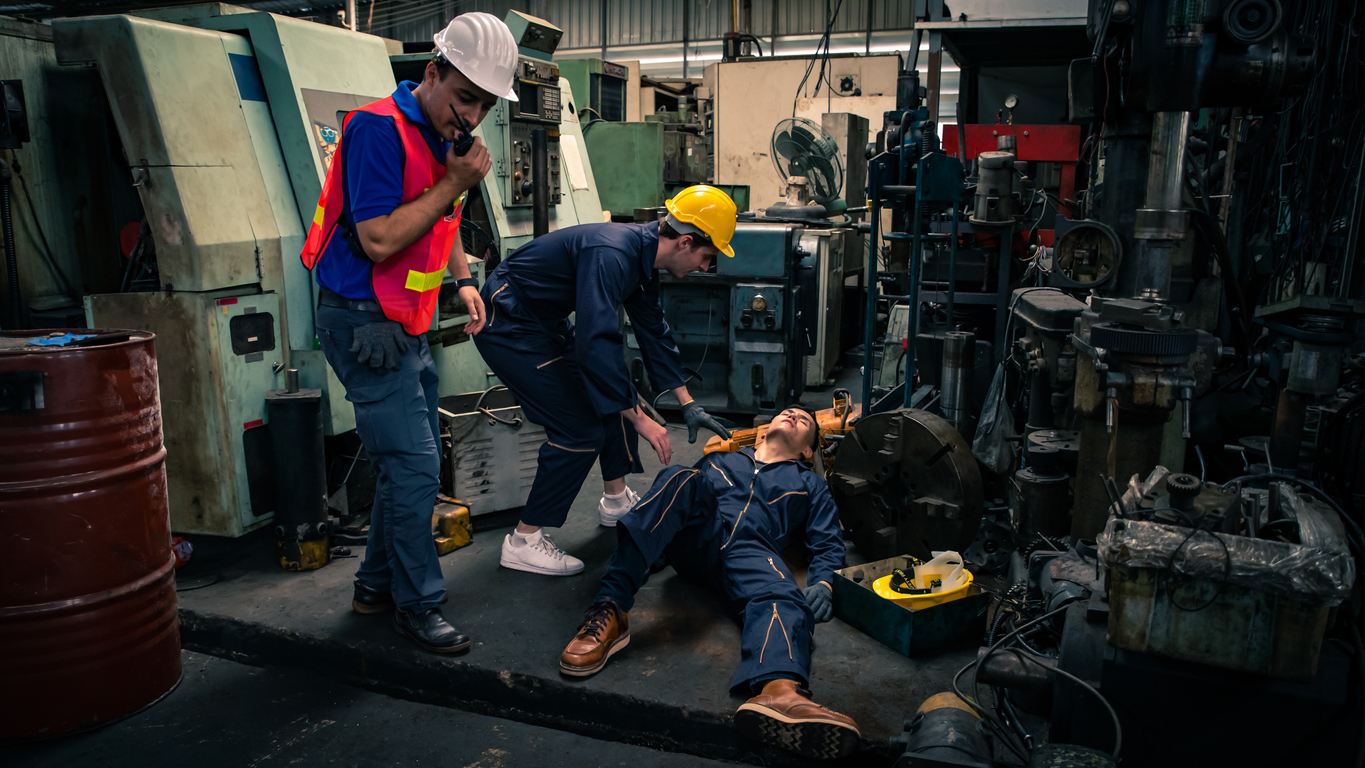Episode 61: Calloway County attorney Jeff Roberts has over 30 years of experience as a workers’ compensation attorney. Many of the claims he’s handled involved factory accidents and injuries. In this episode, he’ll discuss common types of factory injuries and what you should do if it happens to you.
A factory environment is a dangerous environment. Workers are exposed to a wide variety of risks ranging from minor cuts and scrapes to workplace fatalities. If you are injured on the job, you should qualify for workers’ compensation benefits, including medical treatment for your injury.

Low Back Injuries
People working in the shipping department are usually required to lift heavy items and to twist themselves while moving packages or equipment. A fairly common result is a low back injury. If you’ve experienced a back injury, it’s going to be a painful situation that requires time to properly heal. It’s important that you seek medical treatment and do your best to follow your doctor’s recommendation for medication, physical therapy or other means of treating your injury.
Depending upon the seriousness of your pain, your doctor may decide to run an MRI or CT scan to determine the extent of the back injury. This may lead to back surgery or multiple surgeries. Again, if you suffer an injury to your back, seek medical treatment. A delay in treatment, may lead to additional damage.
IMPORTANT: Remember You Have a Duty to Report Your Injury
Before we get to additional types of factory accidents, Jeff discusses an important legal requirement you have is you get injured on the job. You have to give notice to your employer as soon as practical, after your injury. This doesn’t mean immediately. Even if there is a company policy stating you have to do it within 24 hours, that’s not the law. However, as soon as you are able to do so, you need to contact your supervisor or someone in management. If you fail to notify them, you may be prevented from filing a workers’ comp claim.
Even if your injury isn’t painful enough for you to immediately go to the doctor, Jeff recommends that you go ahead and tell your supervisor. It’s possible that the next day, or during the next several days, your pain may increase. At that point, you may decide to seek medical treatment. The advantage is, you’ve already fulfilled your duty to notify and it can make it harder for the insurance company to blame the injury on a non-work-related activity.
One more tip is that you should make sure you tell your medical provider that the injury happened while you were at work. Regardless of whether you’re visiting the urgent care, your family doctor, a chiropractor or other healthcare provider. You want to have it documented in your medical record. That will help with your workers’ compensation claim.
Shoulder and Neck Pain
This type of pain is fairly common in factory jobs, especially if you’re doing overhead work or are required to lift objects over your head. Jeff has recommended many clients who have been injured due to this kind of work. If you’re stocking items on high shelves or if you have to dump parts overhead into a high bin, you’re at risk for shoulder and neck injuries.
Jeff explains that you need to pay attention to where the pain is. Sometimes, for instance, maybe you injured your shoulder, but there’s also pain radiating up your neck. If you gloss over the fact that you’re also feeling neck pain, the doctor may focus exclusively on the shoulder, but neglect to diagnose and treat your neck pain. If the doctor didn’t adequately document all of the places you’re experiencing pain, it may be more challenging to get workers’ comp insurance to pay for treatment to your neck and/or nerves. It all comes back to communicating well with your medical provider.
Repetitive Motion Injuries
If your job requires you to continually make the same motion as part of an assembly process or other task, you’re at risk for a repetitive motion injury, also referred to as a cumulative trauma injury. There may not be a single event that caused your pain. Instead, with these types of injuries, the joint simply gets worn out or damaged from overuse. A common diagnosis is carpel tunnel syndrome.
Repetitive motion injuries occur fairly often if you work on an assembly line, operate a punch press, use a torque wrench or other air tool constantly during your shift. The pain usually shows up in the hand or wrist. However, even if your lifting light objects over your head all day long, your shoulder, especially the rotator cuff, can become damaged due to the cumulative trauma.
IMPORTANT NOTE: Because this type of injury occurs gradually, over time, the duty to notify is different from a situation in which you were injured due to a fall, bone break, herniated disk, or other sudden impact. With repetitive motion injuries, you are required to notify your supervisor or management within 2 years of when you were advised of the cumulative trauma injury. Jeff advises that it’s best to notify your employer as soon as your medical provider diagnoses the pain as being work-related. There’s generally no reason to wait, especially if you want the treatment to be covered by workers’ comp.
Seeking Treatment at the Company Medical Facility
Often there may be a nurse’s station on or near the manufacturing floor or building. The company has this to quickly address and treat emergencies that happen at work. However, Jeff explains that these medical providers are also there to protect the company.
Under Kentucky law, workers have the right to choose their own medical provider to treat the work-related injury. That includes your doctor, physical therapist, where you get your MRI and even which pharmacy you get to fill your prescriptions related to your work injury. The company cannot require that you only treat with “the company doctor.” Even if the onsite medical providers or HR people suggest/demand you go see a certain doctor, that may not be in your best interest. Payment for your medical expenses cannot be withheld, just because you didn’t seek treatment from the company doctor, regardless of what they may try to tell you.
Knee Injuries
Another common factory injury is a knee injury. This could happen because of a fall or a sudden twisting motion. If you’re lifting something into a conveyor belt or shelf unit, you could experience a sudden pop and the onset of pain. This could be a torn meniscus or ligament.
Also, because the knee is a joint, it could also be subject to a repetitive motion injury.
If the is a fluid spill or splash, the substance can cause you to slip and fall onto the floor or down a set of stairs.
Crushes or Amputations
As Jeff explained earlier, a factory floor is a dangerous environment. As a former punch press operator, he understands the risk of crushes or amputations. These are horrible accidents. Body parts can get caught in the equipment. Sometimes a safety guard or other safety device has been removed.
Jeff’s had clients who were injured by forklifts and tow motors. These typically involved crushed feet or hands resulting in paralysis, loss of use or amputation. In other cases, there was a collision because the person driving wasn’t operating the equipment in a safe manner.
Traumatic Brain Injuries
There are any number of ways a factory worker could suffer a head or brain injury. It may be an item falling from a shelf or stock-bin. It could be a collision with a moving piece of equipment such as an overhead hoist.
If there is a safety violation involved in the injury due to a company neglecting an equipment issue or co-worker violating a safety rule/protocol, it could result in an increase in the benefits the injured worker receives. Your attorney may be able to prove an OSHA violation, which can add up to an additional 30% to the workers’ comp settlement.
Workplace Fatalities
Jeff has handled these more often than he would like to admit. Some workplace fatalities happen instantly due to the nature of the injury. In other situations, the death could happen weeks, months or even years later, but still be related to medical treatment the workplace injury.
There are different types of benefits available to spouse and minor children (also including certain other types of dependents), when a workplace fatality occurs. They are referred to as Death and Survivorship benefits.
There are many types of factory accidents that can result in the death of a worker. Jeff has outlined several of them, above. However, for reference, here are a couple other types of injuries that could ultimately result in a workplace fatality:
Recognized Experience Throughout Kentucky
Jeff is often contacted by other attorneys across the state for answers to their Kentucky workers’ comp questions. He’s regularly asked by other attorneys to handle workers’ comp claims for either their clients or family members of the attorneys. In fact, the majority of claims Jeff handles come from referrals from past clients and/or other attorneys.
Jeff Roberts Represents Injured Clients Throughout Kentucky
With offices located in Calloway County and now Christian County, Jeff has a history of representing personal injury clients, workers’ compensation clients and social security disability clients across the state. He’s represented clients from Paducah, Bowling Green, Louisville, Covington, Whitesville and many other Kentucky locations. He’s not just a Western Kentucky injury attorney.
We hope you found this episode insightful and helpful. Thank you for listening!
Is It Time to Speak with an Attorney about your Factory Accident Claim?
The office phone number is (270) 753-0053 or toll free at 800-844-5108. For more information, visit www.JeffRobertsLaw.com. This podcast is meant to provide information and is not legal advice. Jeff’s principal office is located at 509 Main Street, Murray, Kentucky. Co-host Jim Ray is a non-attorney spokesperson. This is an advertisement.





